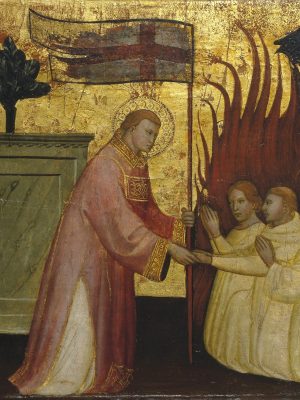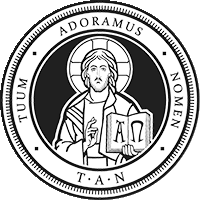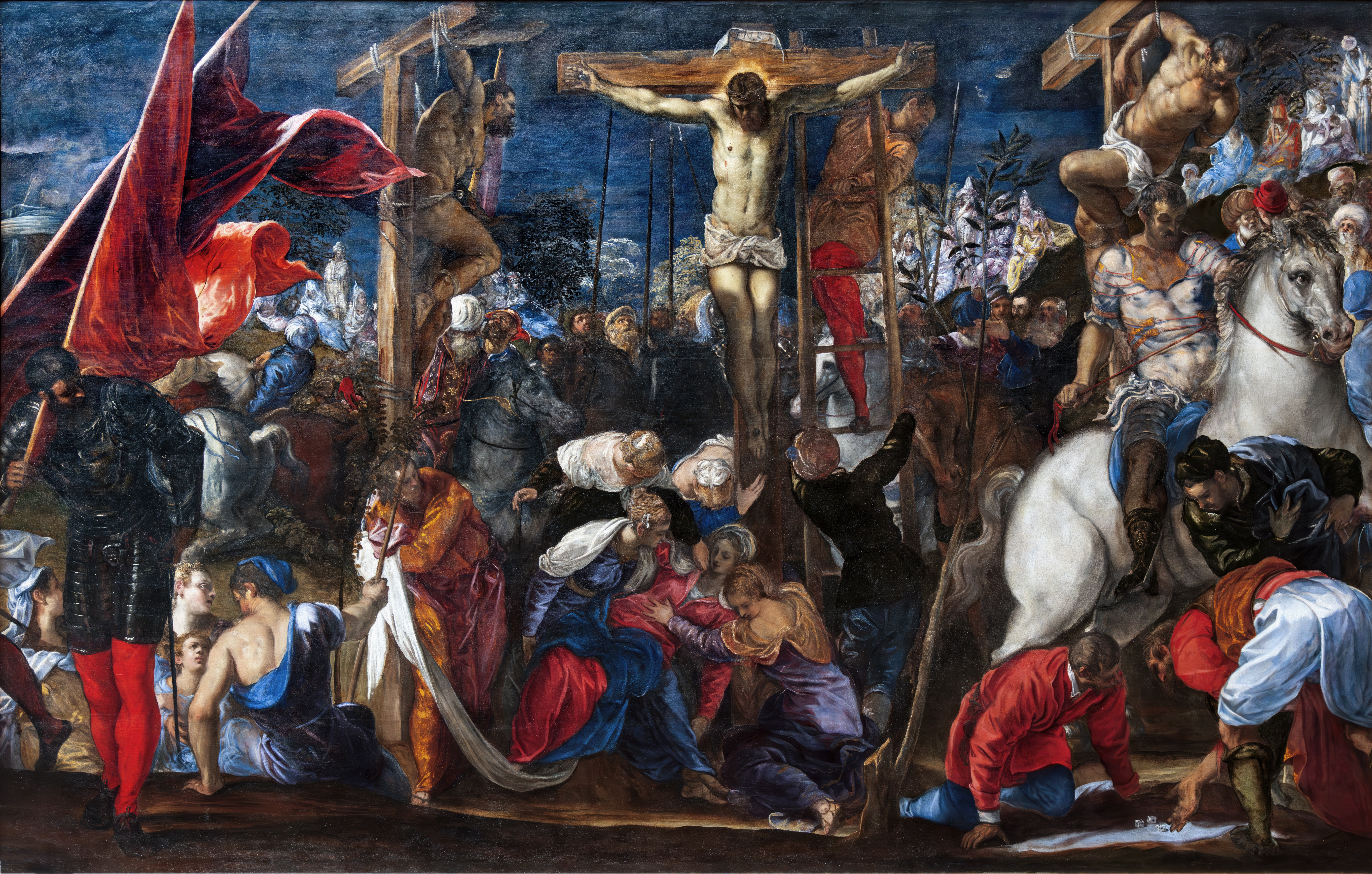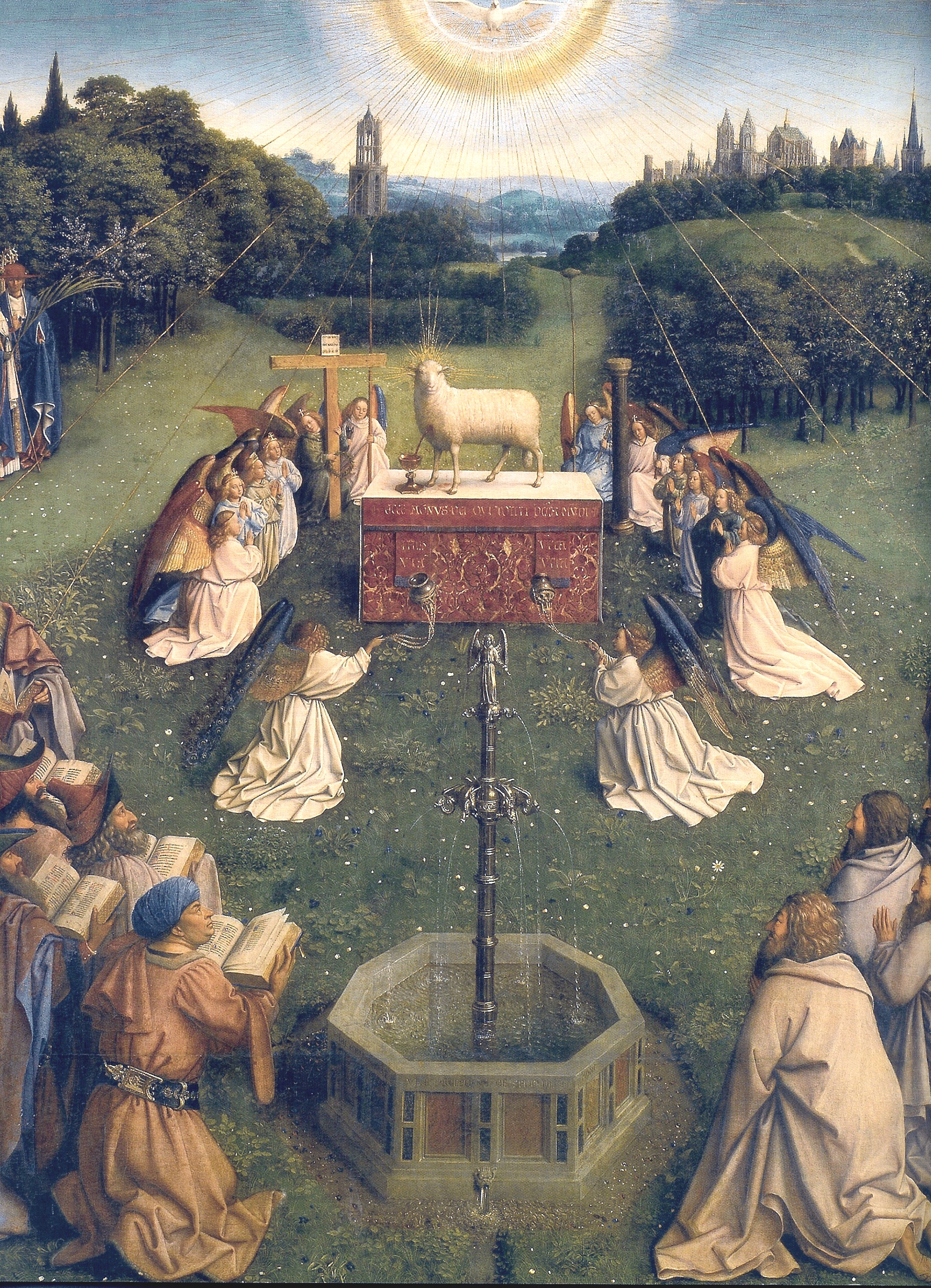Hungry Souls recounts Church-verified accounts of earthly visitations from the dead in Purgatory. Read on for the saints’ counsel on how we can assist the holy souls in Purgatory.
Holy Mass
Since early Christianity there has been unanimity that offering the Sacrifice of the Altar to the holy Trinity is the most beneficial suffrage for the poor souls. Therefore, in the year 387, St. Monica, the mother of St. Augustine, asked her sons in her dying hour “only one thing: that you remember me at the altar of the Lord, wherever you shall be.”
St. Thomas held that only by holy Mass could a soul be definitively delivered from Purgatory. Poor souls indeed very often ask for holy Masses; but an expiatory act of high value is also the offering up of holy Communions, even of so-called spiritual communions. Furthermore, prayers, alms, indeed all acts of charity and all and every ordinary daily work; all mortifications and sacrifices that are offered to God for the relief or release of the suffering souls.
Devotion to the Sacred Heart
The significance of the link between the Sacred Heart of Jesus and these diverse forms of help to the souls in Purgatory—a link to which we have referred several times—is obvious. For the devotion to the Sacred Heart requires that the faithful unite all their activities with the Heart of Christ, which is perfectly present in the Eucharist, in order to make them meritorious. That is what Our Lord had taught to St. Gertrude, long before He appeared to St. Margaret Mary Alacoque; and the Blessed Claude de la Colombière, the foremost preacher of the devotion to the Sacred Heart in the time of St. Margaret Mary, expressly linked this devotion to the aid of the souls in Purgatory. Favorite prayers for the poor souls include the De profundis (Ps. 129) and various prayers or indulgences that may have salutary effects on the departed (provided the requirements and conditions prescribed by the Church are met).
The Blessed Mother
In view of the outstanding power of intercession of Our Lady—we have seen that the Blessed Stanislaus Papczynski taught to especially invoke her as the Immaculate Conception, in fact uniting the devotions to the Sacred Heart, to the Immaculate Heart, and to the souls in Purgatory—the Rosary is the most important prayer after the Mass. What a pity for the poor souls that the traditional habit of praying the Rosary near the coffin of the dead on the day(s) before the funeral has become near extinct!
Furthermore, the litany to the Blessed Virgin, the Memorare, and other Marian prayers are also high on the list. The devotion to Our Lady of the Carmel (which implies bearing the scapular), as propagated long ago by St. Simon Stock, offers special graces to the soul of the devotee when it is his turn to go to Purgatory.
Acts of Love and Sacramentals
In general, it is highly probable that all purely intentioned religious, and even not strictly religious, acts and gestures motivated by love of the deceased are acceptable to God so that they may serve as refreshment for the poor souls: invoking the saints on behalf of them, sprinkling holy water, making the Sign of the Cross with holy water, burning a candle, and so on.
Who Can Help the Souls in Purgatory?
According to an old tradition, one’s guardian angel encourages and supports the soul in Purgatory, transmits its prayers, and in the end accompanies it to Heaven. By themselves, the angels cannot mitigate the suffering; not even the saints in Heaven may do this of their own accord, but only if invoked by the living and with God’s permission (as it is traditionally assumed). Only the Church Militant can come to the aid of the Suffering Church.
The suffering souls, in turn, sometimes help the living who help them, either because they pray for their needs, or indirectly, because God rewards the helpers.
Maria Anna Lindmayr thought that “God hears the one who prays for them, since the prayer for the least of his brothers is most agreeable to Him.” Be this as it may, from a large body of examples over the centuries, it is incontestable that the poor souls are grateful, whether they can effectively pray for their benefactors while in Purgatory or after their entry in heaven.
Having enjoined on his hearers the obligation to “assist, to the utmost of our power, these beloved spouses of Jesus Christ [the poor souls], by recommending them every day to God, and by sometimes getting Mass offered for their repose,” St. Alphonsus assures that “they certainly will not be ungrateful; they will in return pray for you, and will obtain for you still greater graces, when they shall have entered into the kingdom of God.”
St. Catherine of Bologna was one of the great helpers of the poor souls and, for that reason, could testify to the existence of a mutual flow of aid: “They always helped when I had recourse to them.”
ooo
This article is taken from a chapter in Hungry Souls by Gerard J.M. van den Aardweg which is available from TAN Books.








